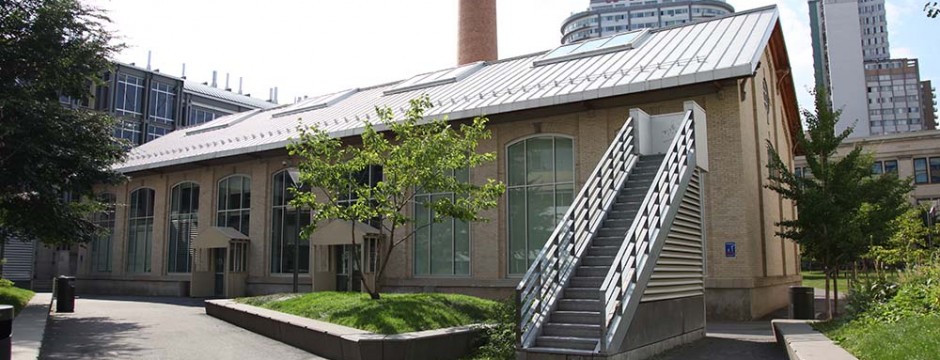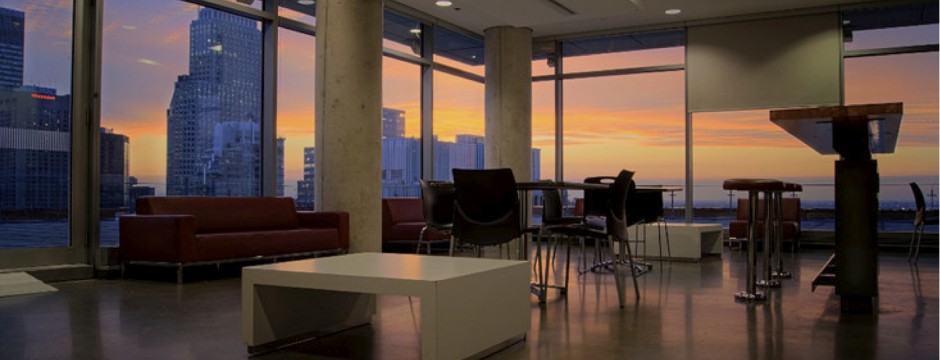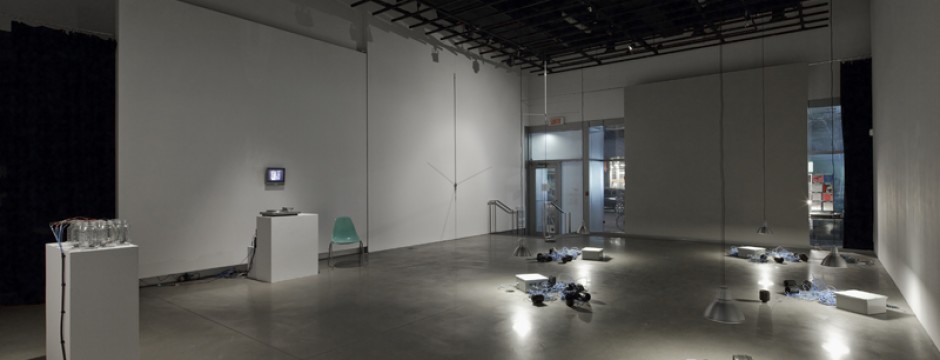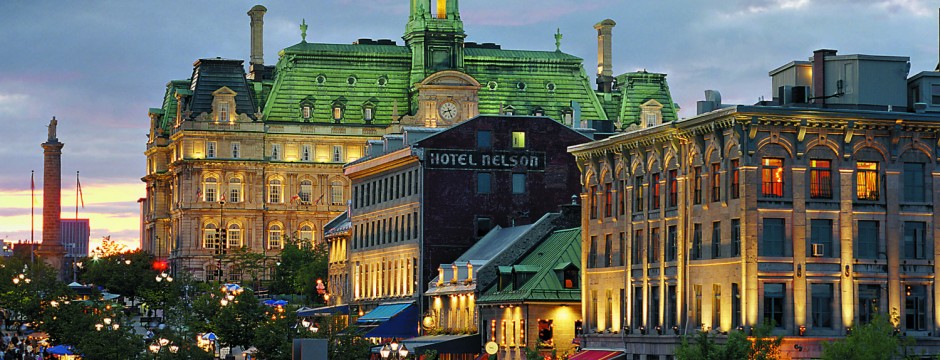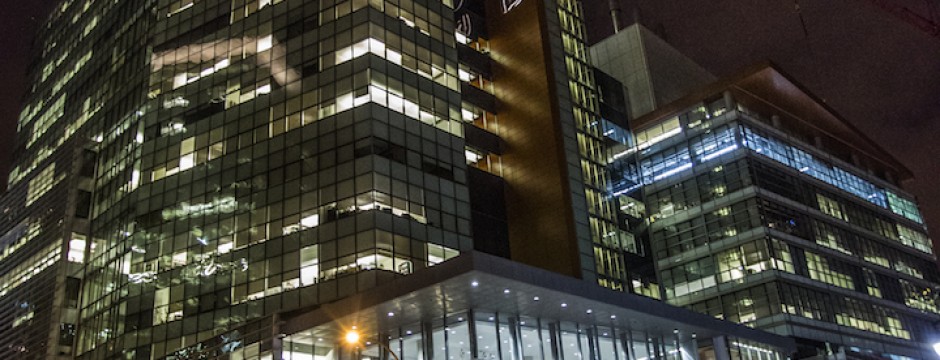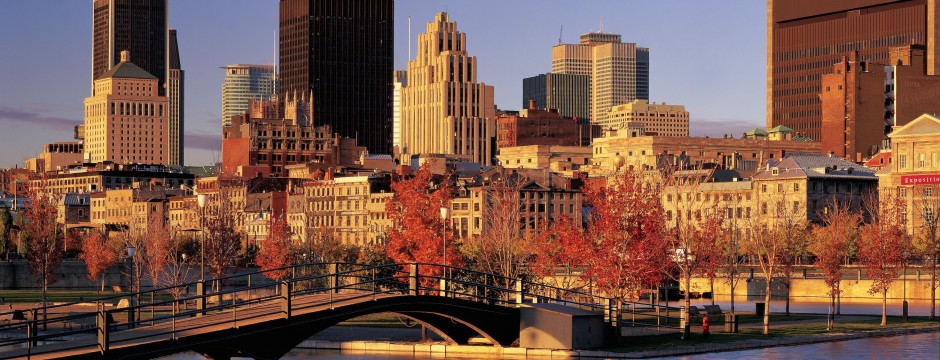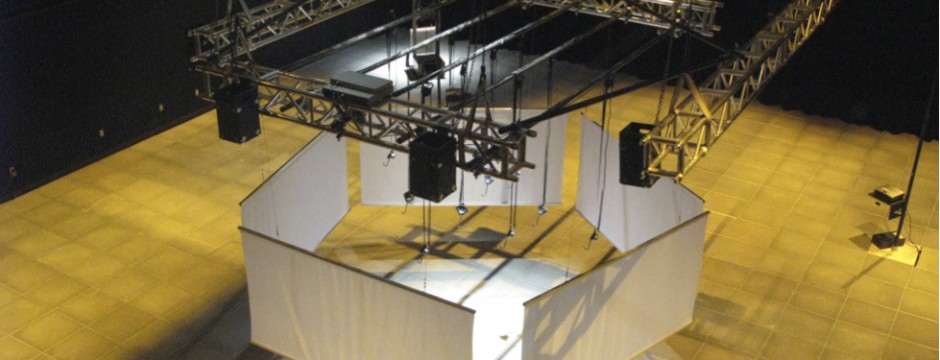Re-Create: Theories, Methods and Practices of Research-Creation in the Histories of Media Art, Science and Technology – Montréal, 5-8 November 2015
Video Presentations Online
Re-Create 2015 Conference, the Bridge Panel session and the Emerging Researchers’ Symposium was a great success! The quality of the various presentations, events and discussions that took place over the course of the 5 days was highly praised, and this is due to our participants.
The video documentation of the presentations and the Q&A sessions is available on the MediaArtsHistoriesArchive and on the Hexagram Network Youtube channel.
Photos are available on the Hexagram Flickr page.
LINK TO ALL VIDEO PRESENTATIONS SORTED BY AUTHOR
EVENT OVERVIEW
MAH Re-CREATE 2015 will take place from November 5-8
At Université du Québec à Montréal, Coeur des Sciences, Agora Hydro-Québec, 175, avenue du Président-Kennedy, Montréal and at Concordia University, E.V. building, 1515 Ste-Catherine West, Montréal
Both venues are in close proximity of each other, downtown Montreal.
Re-Create 2015 will mark the 10th Anniversary of the International Conference on the Histories of Media Art, Science and Technology. The conference will be hosted by two Hexagram sites at Concordia University and Université du Québec à Montréal (UQAM), core antennas of the largest network dedicated to research-based creative practice in media art, design and technology. The venues are centrally located in vibrant, downtown Montréal – the digital arts capital of North America. The conference will include plenary sessions of individual and panel presentations, workshops and three keynotes.
The conference returns to Canada since the inaugural event Refresh! in Banff in 2005 to reflect on and re-examine topics of driving concern that have continually arisen at the previous MAH editions in Berlin (2007), Melbourne (2009), Liverpool (2011) and Riga (2013). The entanglements among practice, theory and method within media art, design, science and technology are increasingly critical to academic and cultural milieus. Concurrently, the inclusion of artistic disciplines involving technological-cultural instruments, concepts and methods is increasingly supported internationally by granting agencies and policy bodies. This has facilitated the emergence of practice-driven research paradigms, along with questions of method, validation, opportunities and problematics that such paradigms imply. Re-Create 2015 seeks to broadly interrogate the historical entanglements of practice-driven research within a wide and diverse set of international sites, disciplines and contexts related to the intertwined histories of media art, science and technology.
Originating in Québec, Research-Creation is part of the growing global movement in university research contexts to embrace creative practice as a legitimate form of knowledge production within new knowledge societies. Research-Creation is a developing research trend linking the interpretive disciplines (humanities and social sciences) with creative ones (art and design) that involves the creation of knowledge in and through creative material and performative practice. Since 2001, Research-Creation within Hexagram specifically has played a major role in Québec and Canada enabling and sustaining new forms of art, design and performance to emerge within the framework of technological culture. The theme of Re-Create 2015 continues methodological discussions that Hexagram has conducted over many years involving a range of international scholars, practitioners and local research council policy makers. Re-Create conference thus follows up and extends those discussions by focusing on six core thematic questions:
(1). Theoretical Currents : How do the Senses, Animals and the Apocalypse inform research-creation practices ?
(2). Sites : How have sites of research and practice evolved in Latin America, Eastern Europe, Japan, Sweden and Indigenous Cultures?
(3). Histories of the Studio Lab : How have Australian, British, Canadian and American artists historically worked in academia, industry and generative art?
(4). New Methods : What can the concept of co-production (STS), musique concrète, intersectionality theory and critical race studies, as well as the debates about the “practice turn” in higher education provide to the historical and critical positioning of practice?
(5). Digital Humanities and Critical Practices : What are the challenges and the future of transdisciplinary collaboration? What can media archeology do for the humanities and contemporary academic culture? How has failure impacted practice-led research?
(6). Curatorial Actions and Practices : How have philosophy, industrial creation, feminism, sound and “imageness” historically entered into curatorial practices?
PRESENTERS : Clarisse BARDIOT, Michele BARKER, Giselle BEIGUELMAN, Georgina BORN, Roberta BUIANI, Yan BREULEUX, Andres BURBANO, Michael CENTURY, Owen CHAPMAN, Budhaditya CHATTOPADHYAY, Barbara CLAUSEN, Hart COHEN, Ricardo DAL FARRA, Michael DARROCH, Alison DE FREN, Sara DIAMOND, Lori EMERSON, Maria FERNANDEZ, Francesca FRANCO, Darko FRITZ, Monika Kin GAGNON, Laura GRACIA, Orit HALPERN, Kevin HAMILTON, Jens HAUSER, Mark HAYWARD, Paul HEYER, Stefan HOLTGEN, David HOWES, Alice Ming Wai JIM, Martyn JOLLY, Srajana KAIKINI, Katja KWASTEK, François-Joseph LAPOINTE, Martina LEEKER, Jason LEWIS, Patrick LICHTY, Alison LOADER, Jung-Yeon MA, Roger MALINA, José-Carlos MARIATEGUI, Jelena MARTINOVIC, Patrick McCRAY, Gabriel MENOTTI, Jo Ana MORFIN, Anna MUNSTER, Ignacio NIETO, Sally Jane NORMAN, Jussi PARIKKA, Christiane PAUL, Anthony OATES, Jesper OLSSON, Anna ORRGHEN, Maciej OZOG, Simon PENNY, Shintaro MIYAZAKI, Cheryl SIM, Morten SøNDERGAARD, Ghislain THIBAULT, Darren WERSHLER, Ruth WEST, Solvita ZARINA
Conference c0-chair: Dr. Christopher Salter, Co-Director, Hexagram; Associate Professor Design and Computation Arts, Faculty of Fine Arts, Concordia University
Conference co-chair: Gisèle Trudel, Professor, School of Visual and Media Arts, Arts Faculty, University of Québec at Montreal. Trudel is the former Director of Hexagram-UQAM (2011-13) and Co-Director of Hexagram (2012-15).
PRE-CONFERENCE EVENTS
The Emerging Researchers’ symposium
A special one-day pre-conference event will take place on November 4, 2015: The Emerging Researchers (ER) symposium, organized and peer-reviewed by PhD students. The ER Symposium highlights the contributions of new scholars in the expanding interdisciplinary domain of media art histories and focuses on questions of interdisciplinarity, institutional versus anti-institutional research-driven practice, and the entanglements of infrastructure, funding, power and tradition that have historically grounded “research.” The symposium will be a unique opportunity for graduate students, recent PhDs and Postdocs as well as emerging practitioners outside of the academic milieu, to present their research and practices in the context of an international community of scholars and students, expand on and exchange ideas in working groups and receive feedback from established mentor experts in the field.
For the first time, the organizers of the International Conference series on the Histories of Media Art, Science and Technology in affiliation with Leonardo/ISAST, a driving force leading the field, is offering a scholarship in recognition of the best presentation at the Emerging Researchers’ Symposium in collaboration with Media Art Histories Re-Create 2015. The recipient will be awarded $1000 CAN to support their ongoing research. The award will be presented at the opening of Re-Create, November 5th. The scholarship is generously donated by Leonardo/ISAST and the editors of Relive: Media Art Histories (Leonardo Book Series, MIT Press, www.mitpress.mit.edu/books/relive).
On the morning of the opening of the main conference (November 5th), a special “Bridge” panel session, moderated by KDMI Senior Fellow (U Toronto) Nina Czegledy, will create a link between the ER symposium and the Re-Create main conference. Featuring graduate student participants from the ER and expert mentors, this session will summarize the results of the ER conference and “bridge” them in relation to MAH’s themes.
SATELLITE EVENTS
We encourage delegates to discover the vibrant Montreal media arts culture. During the week of MAH Re-Create 2015, several satellite events are being planned in collaboration with local cultural organizations. These include the Faculty of Fine Arts (FOFA) Gallery, Galerie de l’UQAM, Oboro, SAT, Elektra/BIAN, Canadian Center for Architecture, the Goethe Institut, the Musée d’art contemporain, and the Montreal Museum of Fine Arts. Several book and special editions will be launched during MAH, including a special dedicated edition on the methodologies of research-creation by Media–N, the Journal of the New Media Caucus.

